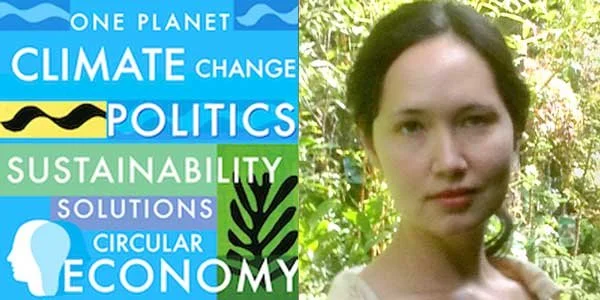KEVIN TRENBERTH
Manage episode 345892307 series 3280378
Kevin Trenberth is a Distinguished Scholar at the National Center of Atmospheric Research (NCAR) in Boulder and an Honorary Academic in the Department of Physics, Auckland University in Auckland, New Zealand. From New Zealand, he obtained his Sc. D. in meteorology in 1972 from Massachusetts Institute of Technology. He was a lead author of the 1995, 2001 and 2007 Scientific Assessment of Climate Change reports from the Intergovernmental Panel on Climate Change (IPCC), and shared the 2007 Nobel Peace Prize which went to the IPCC. He served from 1999 to 2006 on the Joint Scientific Committee of the World Climate Research Programme (WCRP), and chaired a number of committees for more than 20 years. He is the author of The Changing Flow of Energy Through the Climate System.
KEVIN TRENBERTH
The whole social fabric that we have is based upon the past climate, and so once we cross that threshold, it's what I call the Straw that Breaks the Camel's Back Syndrome. And so you have a relatively modest change, which I estimate to be in the neighborhood of 5 to 20 percent, typically. And that is enough to nudge us. Instead of 1 billion dollars in damage from a hurricane, we end up with 100 billion dollars. Now, that's just one example. There are many other cases, but the sort of things that happen are indeed that something floods, the amount of water can no longer be tolerated, something completely dries out, there's a drought, and subsequent wildfires when buildings burn down, and so on. Suddenly you've gone from something to nothing. That's an extreme non-linearity. And another extreme non-linearity is, of course, when people die, you don't recover from that.
*
I think certainly we're going to go through 1.5 degrees Celsius. I think the best estimate is probably somewhere around 2032 or thereabouts, the early 2030s. And at the current rate we're going, we'll go through 2 degrees Celsius in the mid to late 2050s. Now there's certainly time to slow that rate of increase down, and we could easily push the 2 degrees Celsius threshold out to 2070 or 2080.
And with really strong efforts, we might be able to hold the overall global mean surface temperature increase to something maybe close to that. Although, whether it goes past it and then comes back a little bit to it, remains to be seen. So this relates to current policies and what nations are committed to doing.
Certainly, if everyone's current policies and what they're committed to doing were in place, we would be in a much better situation than we actually are because a lot of those policies have been mentioned, but there are no implementation plans in many countries. There was a recent report I saw, which said that maybe two countries in the world, out of 190 something countries, are maybe on track to meeting their obligations on the COP26 meeting in Glasgow last year.
*
How can you get to the point where people are actually not moving around as much and reducing their carbon footprint in various ways? The main way we're planning on doing that is decarbonizing the economy. This means electrifying a lot of things. People still are moving around. They're now using electric cars, but they're still using cars. How can you build new cities that don't require that in quite the same way? And maybe we've got some visions as to the sort of things that might happen or should happen during the pandemic when people suddenly couldn't travel, or they were in lockdown, and they had to work from home. Increasingly people have been able to work from home. This was something I advocated a long time ago when I was working at NCAR is that we needed to develop better ways of going to a seminar without driving eight miles across town to a building where that was actually happening.
*
This is an intergenerational problem. The response to climate change relates very much to value systems. And one of the questions people ask or should ask is: How much do you value the future generations? How much do you value the world that you're leaving your children and your grandchildren? And what kind of a climate you're leaving them with?
And some people don't care, and some people don't have children. And they say, "Eh, it's not an issue for me. It's not one of my values." And so this is part of the problem, but if you're thinking about peoples as a whole, all of the community that you're leaving behind, this is a collective problem. And that's the way I think of it is that this is very much an intergenerational problem, and therefore it's in the interests of young people to get much more involved and much more politically active.

This interview was conducted by Mia Funk and Xander Brodeur with the participation of collaborating universities and students. Associate Interviews Producer on this podcast was Lila Muscosky and Xander Brodeur. Digital Media Coordinators are Jacob A. Preisler and Megan Hegenbarth.
Mia Funk is an artist, interviewer and founder of The Creative Process & One Planet Podcast (Conversations about Climate Change & Environmental Solutions).

15 επεισόδια




